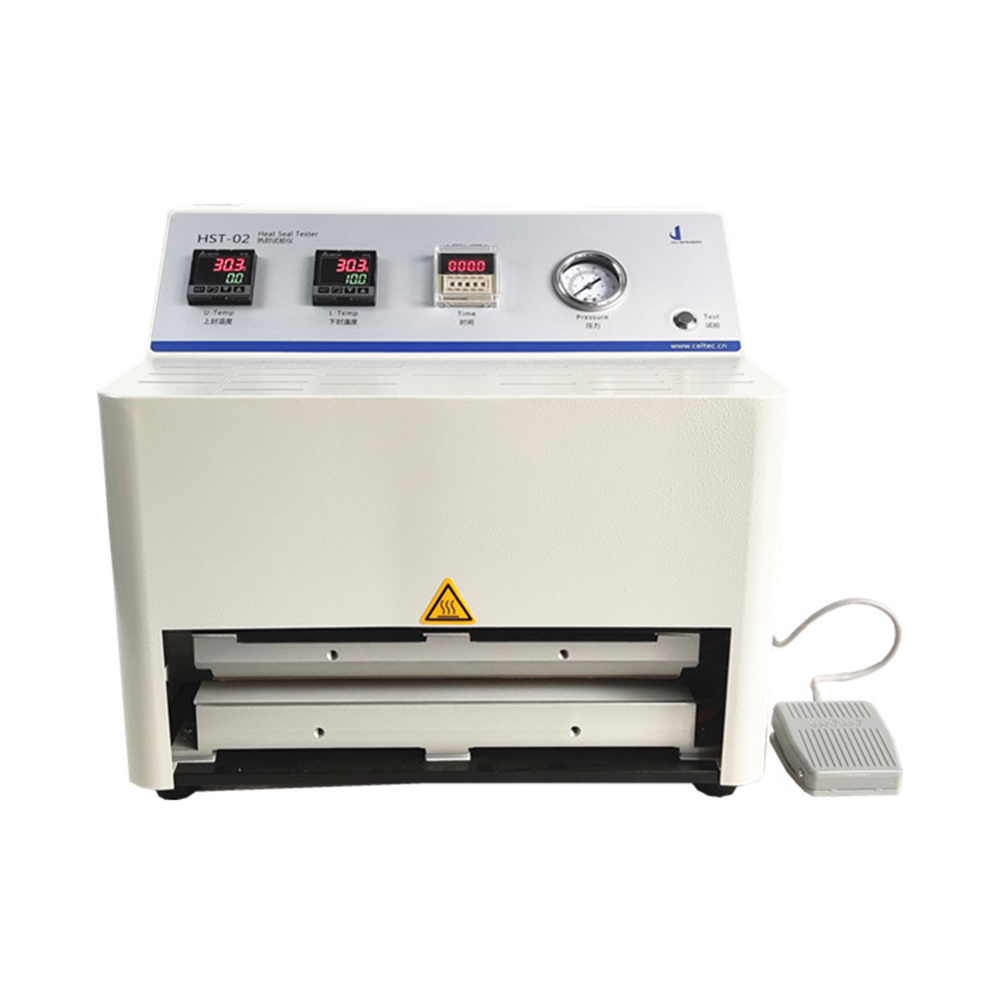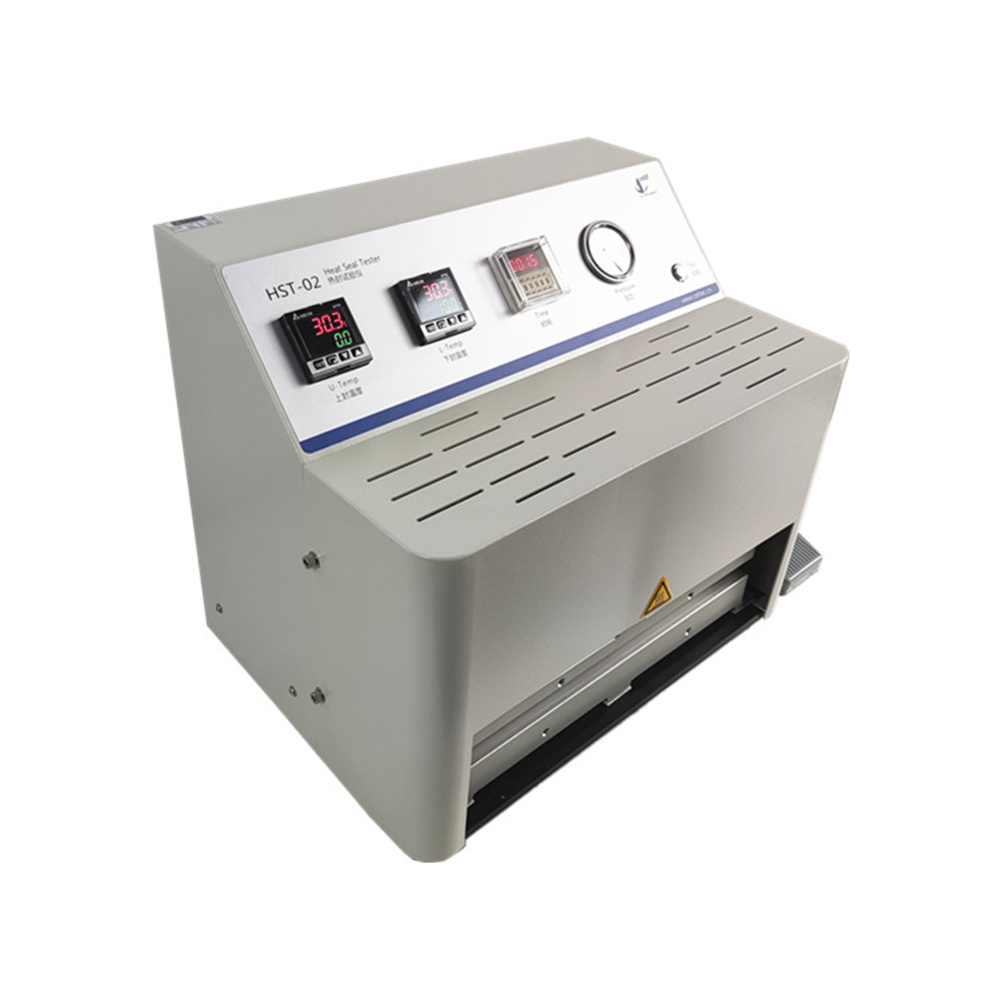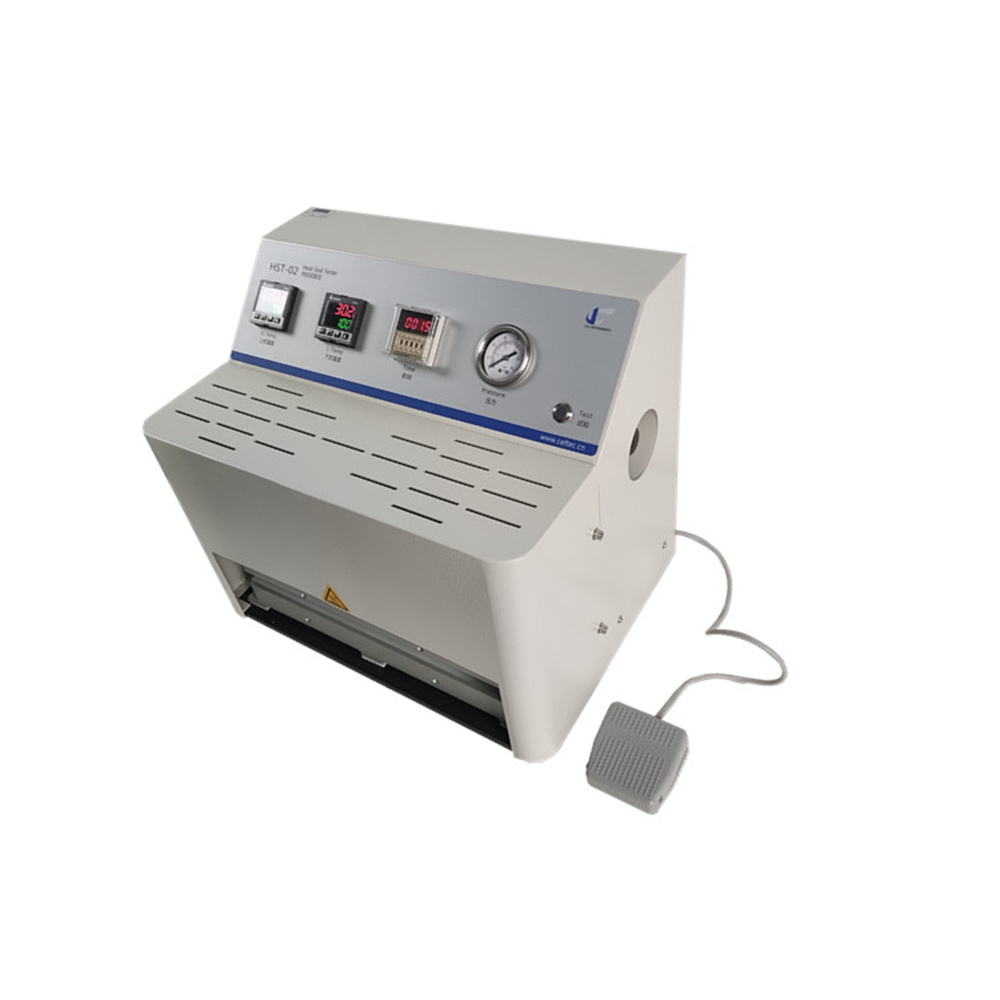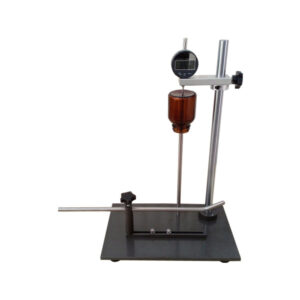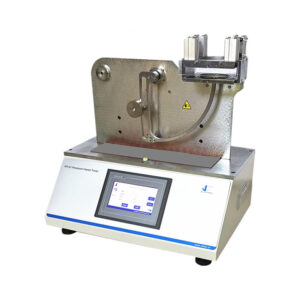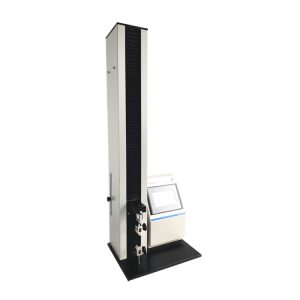Introduction to Heat Seal Tester for Packaging
The Heat Seal Tester for Packaging is an essential tool for testing the heat sealability of various packaging materials such as flexible films, laminates, polymers, and composites. This laboratory-grade instrument is designed to simulate the actual sealing process, enabling manufacturers to ensure the strength, reliability, and functionality of their packaging seals. Effective heat sealing is vital for ensuring the integrity of food, medical, pharmaceutical, and consumer product packaging, where packaging failure can lead to compromised product safety, shelf life, and usability.
The heat seal tester recreates the key parameters involved in heat sealing, namely time, temperature, and pressure, to simulate real-world packaging conditions. This helps manufacturers validate whether their materials are capable of achieving the necessary seal strength to provide an airtight, tamper-proof, and durable seal.
ASTM F2029: Standard for Heat Sealability Testing
ASTM F2029-16(2021) – Standard Practices for Making Laboratory Heat Seals for Determination of Heat Sealability of Flexible Barrier Materials as Measured by Seal Strength – is the key industry standard for testing heat sealability in flexible packaging materials. This standard outlines the procedures and conditions under which laboratory heat seals should be made to evaluate the strength and durability of the seals. By adhering to this standard, manufacturers can ensure that their products meet required packaging specifications.
Key Aspects of ASTM F2029:
- Seal Strength Measurement: ASTM F2029 focuses on determining the strength of heat seals, which is essential for the product’s protection and shelf life. It helps assess whether the packaging will withstand stress during transportation, storage, and handling.
- Test Methodology: The standard specifies the controlled use of time, temperature, and pressure during the sealing process to accurately simulate packaging conditions.
- Scope: This standard applies to a variety of industries, including food, pharmaceuticals, medical devices, and more, where packaging is critical to product safety.
Technical Features of the HST-02 Heat Seal Tester
The HST-02 Heat Seal Tester is engineered with precision to offer high-performance sealing capabilities. This compact and reliable instrument is designed to simulate the heat sealing process accurately, making it a valuable tool for quality assurance teams.
- Aluminum Sealing Jaws:
The upper and lower sealing jaws are made of aluminum to minimize heat loss and ensure temperature uniformity during sealing. This helps maintain a consistent and effective sealing process. - PID Temperature Controller:
Equipped with a Proportional Integral Derivative (PID) temperature controller, the HST-02 ensures accurate and stable temperature regulation, resulting in precise control over the sealing process. - Synchronized Timer and Jaw Movement:
The tester features a precise synchronization between the timer and jaw movement. This ensures that the sealing pressure and time are applied correctly to the sample, resulting in accurate and repeatable testing conditions. - Pressure Control:
A three-way guided sealing bar maintains consistent sealing pressure, allowing for uniform application across a wide range of materials. This ensures the integrity of the seal is tested under realistic conditions. - Safety Features:
The HST-02 prioritizes user safety with an anti-scald front cover to prevent burns, as well as manual and foot switch initiation options for safe and easy operation.
Test Process and Methodology
The heat sealing process using the HST-02 Heat Seal Tester follows a straightforward sequence of steps, carefully replicating the conditions needed for effective packaging seals:
- Sample Placement:
Place the test sample (usually a film or composite material) between two parallel sealing jaws. - Temperature and Pressure Settings:
Set the desired sealing temperature, time, and pressure based on the material specifications and the conditions outlined by ASTM F2029. - Sealing Process:
Once the system reaches equilibrium, the upper sealing jaw, controlled by a gas cylinder, is pushed down to apply pressure to the material for the preset amount of time. - End of Test:
After the preset sealing time ends, the upper sealing jaw returns to its original position, and the seal strength is evaluated using various testing methods.
Heat Seal Strength Evaluation
Once the heat sealing process is completed, the seal strength is assessed to ensure the seal is intact and durable. Evaluation methods may include:
- Seal Continuity Tests:
These tests, such as air-leak testing, dye penetration, and visual inspection, ensure the seal is continuous and does not have any weak points. - Microbial and Barrier Testing:
Additional testing may include evaluating the material’s resistance to microorganism penetration, ensuring that the seal offers adequate protection to the product inside.
The HST-02 Heat Seal Tester offers detailed data that helps manufacturers assess whether their packaging materials meet industry standards for packaging integrity and performance.
Main Parameters of the HST-02 Heat Seal Tester
| Sealing Temp. | Ambient~300℃ |
| Deviation | ±0.2℃ |
| Sealing Time | 0.1S~9999S |
| Sealing Pressure | 0.15~0.7 MPa |
| Seal Jaws | 330*10 mm L*W |
| Gas Pressure | 0.7 MPa |
| Port Size | Ф6 mm PU Hose |
| Power | AC 220V 50Hz |
These parameters allow for a wide range of materials to be tested under controlled conditions, ensuring consistent results across various packaging applications.
Advantages of Using the HST-02 Heat Seal Tester
- Precision and Repeatability: The HST-02 is designed to provide accurate and reproducible test results by precisely controlling the critical sealing parameters.
- Versatility: The tester is suitable for use with a variety of materials and packaging types, from basic plastic films to complex composite materials.
- Compliance with Industry Standards: Fully compliant with ASTM F2029, ensuring that test results meet industry-recognized benchmarks for seal strength.
- Cost-Effective Quality Control: Helps manufacturers identify weaknesses in packaging seals before mass production, preventing costly packaging failures and product losses.
The HST-02 Heat Seal Tester for Packaging is a vital tool for ensuring the quality and reliability of heat-sealed packaging materials. By replicating real-world sealing conditions, the HST-02 allows manufacturers to thoroughly test the heat sealability of materials, ensuring their products meet the necessary standards for strength and integrity. Whether you’re in the food, pharmaceutical, or medical device industry, the HST-02 helps you achieve the highest level of packaging quality and performance.
This instrument is an essential investment for companies aiming to maintain quality control, minimize packaging failures, and improve the overall safety and durability of their products.

